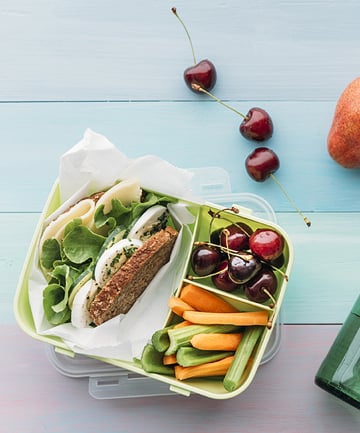Meal replacements might seem like a quick fix, but that's not always the case: "This usually doesn't work because eating a bar is not the same thing as eating a meal with all food components that will leave you satisfied," warns Spence. After a while, she says you will start to crave wholesome foods, which could in turn lead to bingeing. In addition, she notes that replacement drinks don't always cut it, since we naturally crave the action of chewing — and you know what that means: even more hunger pangs.
Image via Westend61/Getty
By similar logic, skipping meals may also trip up your weight loss journey. "Skipping meals may seem like it's a good way to cut calories but in reality, it causes our metabolism to slow down," says registered dietitian Carly Johnston, MS, RDN, LDN, owner of New England Nutrition Advisors. Instead, she says you're actually better off eating every four hours to ensure you're keeping your metabolism revved... and your hunger in check.
Image via Westend61/Getty
"We should not eat and go straight to bed, but there are some times floating around in the media like not eating after six or seven that people try to follow," says Spence. That leaves a good several hours until bedtime if you're a night owl — and Spence warns that if you stop eating too early, you're probably going to get hungry (which could in turn lead to some unwanted late night snacking). Instead, be sure to adjust your meal and snack times to fit your schedule.
Image via Tetra Images/Getty
"Another tactic I've heard is for people to do extremes like either eating really bland foods (because they heard that will save calories) or eating really spicy foods to burn calories," says Spence. As she rightly points out, just because food tastes bland, it doesn't make it low calorie. And although spicy foods raise your metabolism slightly, she says it's generally not enough to make a difference in how your body burns off a meal.
Image via Sergio Amiti/Moment/Getty
"This way of breaking food down into points may be helpful for some, but depending on which diet you're on, it could lead to missing out on essential nutrients — like calcium and B12 from dairy products," says registered dietitian Jess English, RD.
Image via John Fedele/Getty









